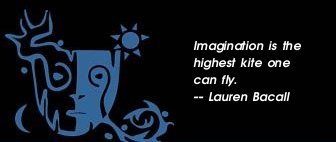|

Selections from Fire’s Goal: Poems from the Hindu Year
by Laurie Patton, Ph.D.
 Editor’s
Note : Mythic Journeys presenter
Laurie Patton, Ph.D., is Associate Professor of Early Indian Religions
and Chair of the Department of Religion at Emory University in Atlanta. She
spends a great deal of her time in India, and she has written numerous academic
articles and books , such as Authority, Anxiety, and Canon: Essays in Vedic
Interpretation; Myth as Argument: The Brhaddevata as Canonical
Commentary; Jewels of Authority: Women and Text in the Hindu Tradition;
Bringing the Gods to Mind: Mantra and Ritual in Early Indian Sacrifice;
plus Myth and Method (ed., with Wendy Doniger) and The Indo-Aryan
Controversy (ed., with Edwin Bryant). Her translation of the Bhagavad
Gita is forthcoming, as is another book, Grandmother Language.
Patton is also a poet, and here, with her permission, we share with you
selections from her book of poetry,
Fire’s Goal: Poems from the Hindu Year . We refer you to the
book itself for diacritical marks indicating the appropriate pronunciation of
those words which are transcriptions into English from the Sanskrit. Editor’s
Note : Mythic Journeys presenter
Laurie Patton, Ph.D., is Associate Professor of Early Indian Religions
and Chair of the Department of Religion at Emory University in Atlanta. She
spends a great deal of her time in India, and she has written numerous academic
articles and books , such as Authority, Anxiety, and Canon: Essays in Vedic
Interpretation; Myth as Argument: The Brhaddevata as Canonical
Commentary; Jewels of Authority: Women and Text in the Hindu Tradition;
Bringing the Gods to Mind: Mantra and Ritual in Early Indian Sacrifice;
plus Myth and Method (ed., with Wendy Doniger) and The Indo-Aryan
Controversy (ed., with Edwin Bryant). Her translation of the Bhagavad
Gita is forthcoming, as is another book, Grandmother Language.
Patton is also a poet, and here, with her permission, we share with you
selections from her book of poetry,
Fire’s Goal: Poems from the Hindu Year . We refer you to the
book itself for diacritical marks indicating the appropriate pronunciation of
those words which are transcriptions into English from the Sanskrit.
(Patton notes
: “Purnima is a ritual of offerings to the moon at the start of the lunar
month, usually made of rice and milk.”)
Purnima,
(Full Moon Sacrifice)
In this warming sky
you are fully white
needing white honor:
rice and boiled milk –
these are the ways
But the law
that white produces white
is not all there is
to your pull:
a cow’s eye
looks back at the dawn
and traces your disappearance
in the sweeps of her tail;
the cooking pot
states a sphere
between sharp flames;
these are not copies
but so many fragments
craving your whole
I must remind you
to gather them up again
in whiteness
(Patton notes about the following poem
, “At this festival, in late monsoon August, snakes are honored with offerings;
neighbors find local ponds and wells to bathe in, and make drawings on
doorposts and thresholds. One legend has it that the famous grammarian
Patanjali, is descended from a family of nagas, or snakes.”
Editor’s note
: see Mythic Passages’ archived February issue for a version of this legend in
Long Ago In India.)
Sravana, Naga Pancami
(Festival of Patanjali The Grammarian, Descended from the Snake)
This morning, you coil around
the last of sleep
hardly black, barely green
I cannot read you
Between the blades of kusa grass
Between the leaves of palm
all days this month
you swim up to the light
defying your home
you twist around a doorpost
lace between fingers
children squint to find you
but you will tell me
squinting is necessary;
reading is beyond
the slither of letters
that catch the eye
and curl the tongue
you will say
it is unruly motion
between water and light
that makes rows of verbs
and strings of phrases
you will show
that my algae of words
cannot gleam
until you swim between them
slippery and clarifying.
(Patton notes about the following poem
, “ Diwali, usually October/November, is the festival of the triumph of light
over darkness. At twilight in Diwali, small leaves containing lamps are floated
down the river. If it floats safely downstream, the year will be happy.
Gangotri is the town nearest the source of the Ganges River in the Himalayas.”)
Diwali at Gangotri
I want to remember
the flame floating down
in pure abstraction
oval, orange, heat
I want to recall
the mythical memory
of Bali crushed,
Rama in triumph,
encircling Sita
but instead this small fire
encased by leaf
presses forward
by the violence of torrents
so that it finds its own eddies
still small, it starts down
ten thousand feet
I blink as I imagine
how it might survive
no mythical memory here
just the sheerness of drop
and the chance that the victory
of light over darkness
is neither in memory
nor abstraction
but in that mother’s eye
as she climbs to her temple,
listens to the river
and glimpses the flame
in the flinch of the yogi
who breathes in the night
and sees the pale flash
between snow and bamboo
in the mistake by the child
who thinks it a shell
and reaches into the river
to hold the glow near
light over darkness
brings triumph of motion
perpetual distraction
and perceptual error
before its leaf
finally succumbs
to the waves
(Additional notes from the poet
, regarding line 7, “ Diwali celebrates Visnu, in the form of a dwarf, defeats
the demon Bali.” About line 9,” Diwali marks Rama rescuing his wife Sita and
defeating the demon Ravana.” And about stanza 6, line 1, “in the flinch of the
yogi,” she explains, “a traditional Hindu renunciant and forest – dweller who
practices meditation.”)
Nityam Sesa: Visnu’s Cobra in the Woods
I want to touch
your scales, your hoods;
I am jealous
of the god
who sleeps on you
who belches out aeons
like so many yawns
before bed
you approximate infinity –
always in numerals,
and sometimes in feeling
but I also want
to touch those leaves –
the endless traces
of green behind you,
to gather all of them
in small fistfuls
and feel the measure
of my slow feet
padding the dirt
in prayers and circles
these measures
are infinity too,
but they will never
amount to a numeral:
they are instead
the endless counting
of your powers
in sweat and joy
(In Patton’s footnotes
regarding this poem, she explains,” Visnu is said to recline on an ocean
between the ages, protected by a snake whose spread hood hovers over his head.
This snake, or sesa, is a symbol of infinity and endless power that the god
possesses.” Editor’s note: For more about the story of Visnu see the February
issue of Mythic Passages and Long Ago in India.)
For the Red-Throated Sparrow
When the branches rustled,
I was dreaming of Draupadi
singing as she bathed her hair
in Duhsana’s blood –
but you wake me with music;
and your red throat reminds me
as Draupadi did
that in some seasons
there is no difference
between beauty and wound.
(The poet explains
, “ In the Hindu epic the Mahabharata, the heroine Draupadi is wife of the five
Pandava brothers. She suffers public humiliation at the hands of Duhsana, one
of the Kaurava brothers who are the Pandavas’ enemies. She swears that she will
wash her hair in his blood out of revenge for the abasement she has suffered.”)
Found Poetry
- for JH
poems found
in the middle of pages
you already knew
khila means:
the holy end
of a sacred text
or the rubble
at the edge of a field
first wisdom:
one’s rubbish
is another man’s treasure
second wisdom:
it is also one’s own
This is copyrighted material reproduced with the permission of the author, and
it may not be reproduced without such permission.
Return to Passages
Menu
Subscribe to the Passages
e-zine
|

